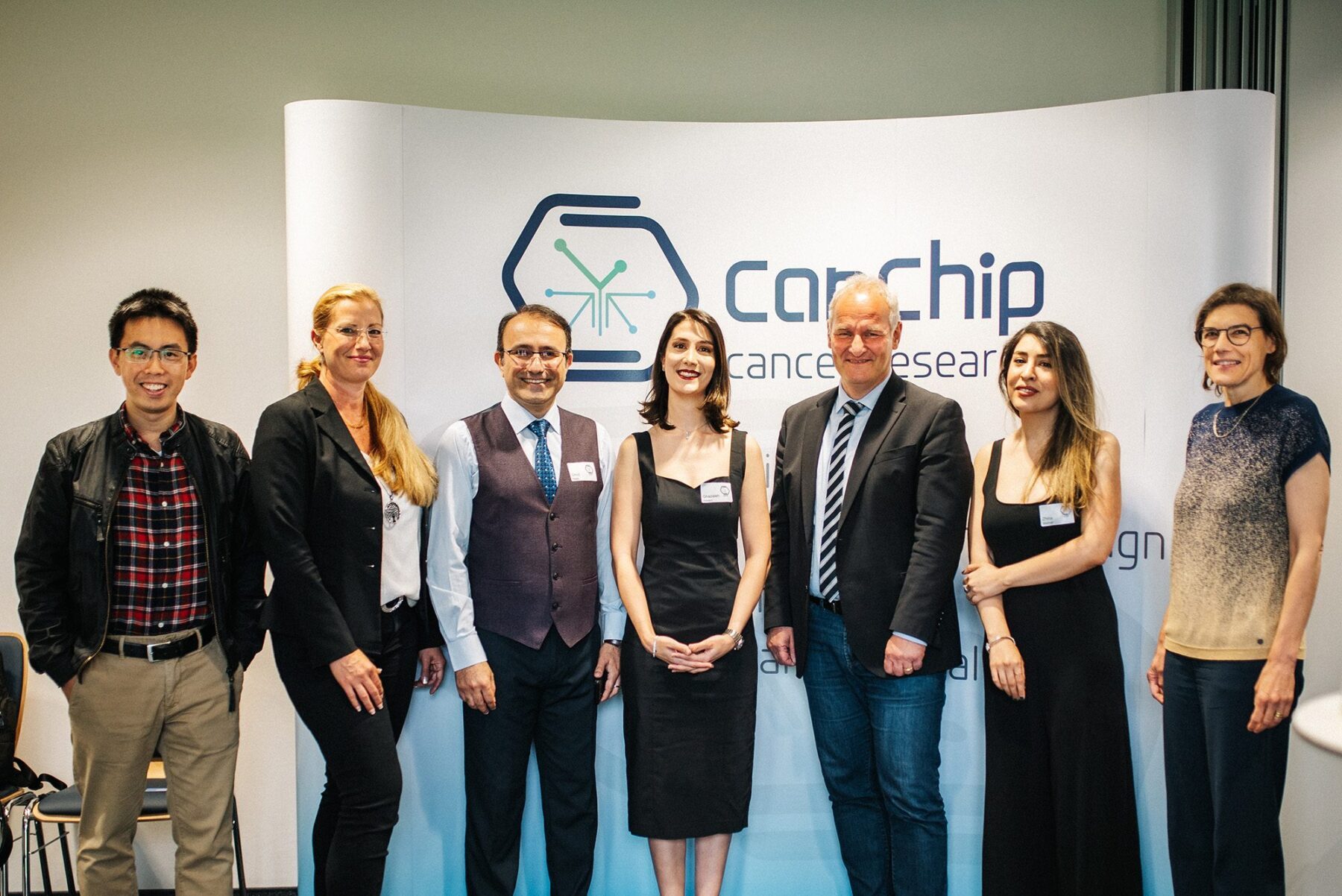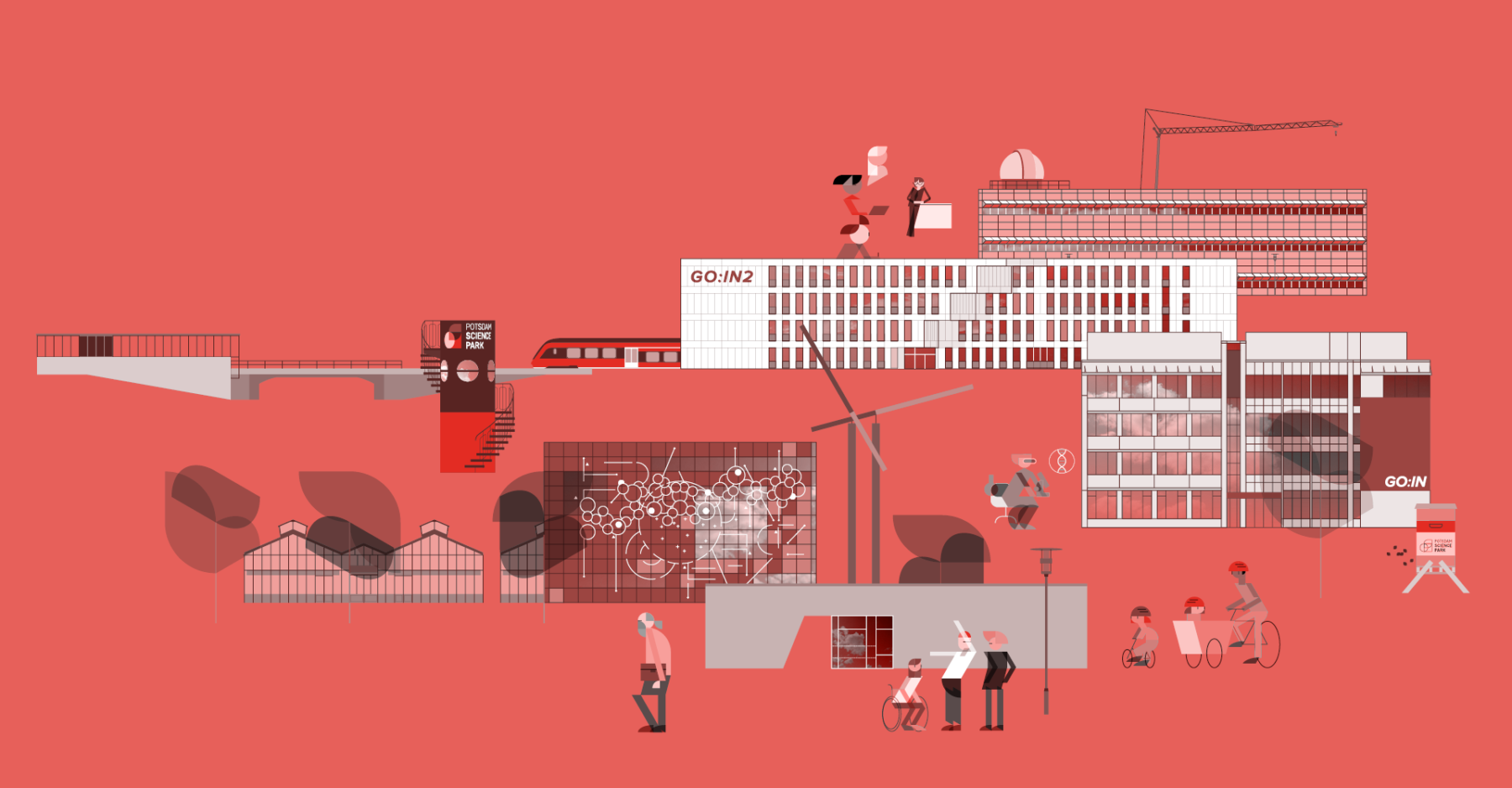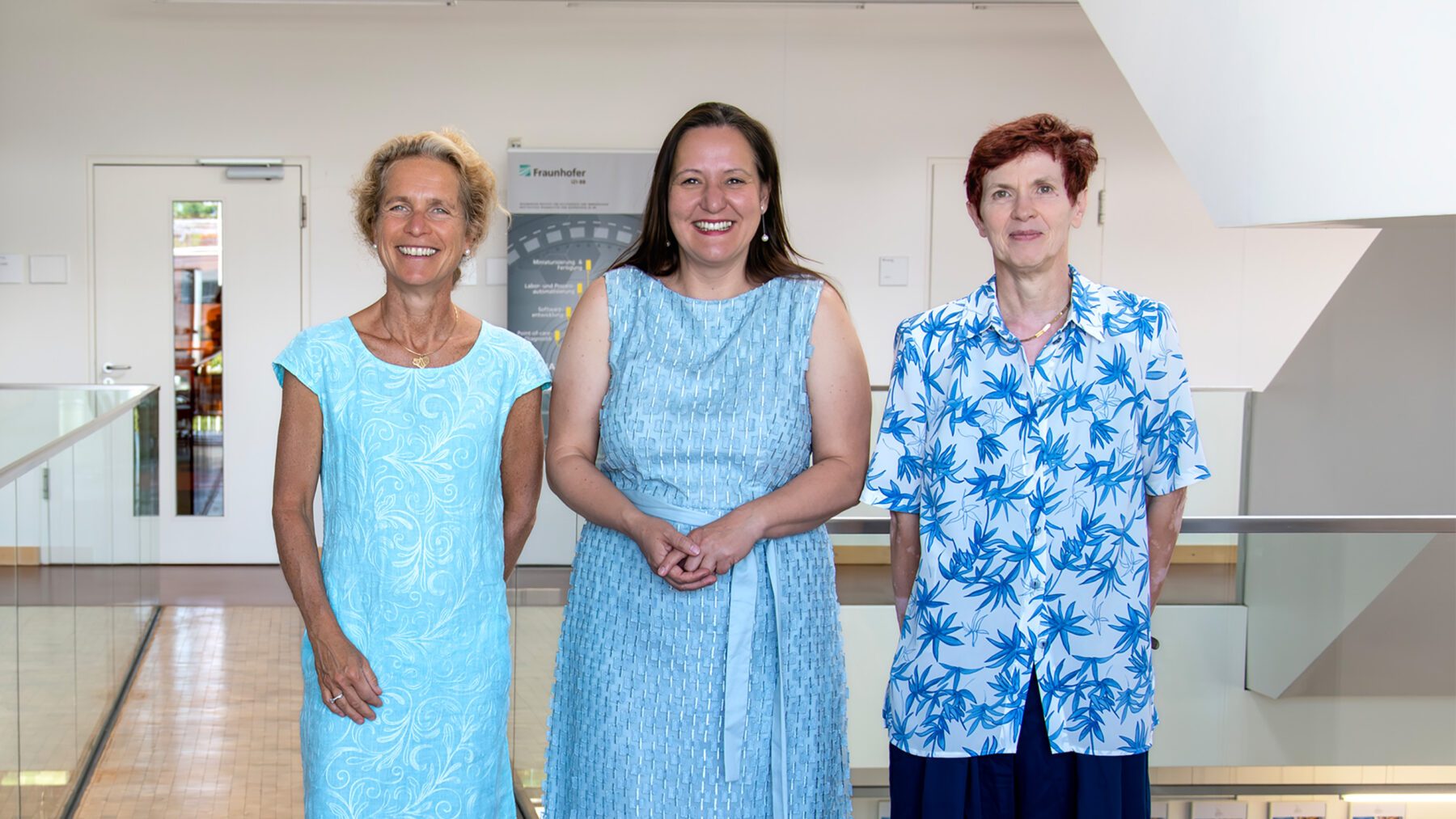-
Suggested search terms:
- Counseling
- For Startups & Companies
- Funding
- Rent & Buy
Video Trailer
News
News
Digital Diagnostics in Rural Areas – Minister Manja Schüle Visits Fraunhofer Center for Digital Diagnostics in the Potsdam Science Park

Tumor-on-a-Chip Technology – CanChip opens Lab in the Potsdam Science Park
Turbo for Knowledge-Based Spin-Offs – Green Light for Berlin Brandenburg Startup Factory UNITE
Events
After Work Beer – Meet Your Science Park Community
Join us! Regularly, on the first Thursday of the month, scientists, startup teams, doctoral candidates and students of the University of Potsdam meet at our »After Work Beer« community gathering. It starts at 5 pm in a relaxed atmosphere. Drinks and snacks will be provided – and our »Open Mic« will…
RegisterFunding Programmes and Loans Q&A—ILB and WFBB Consultation
Would you like to find out about funding programmes, loans and other financial support for companies in Brandenburg? Are you looking for a new location in Brandenburg and need support with networking in the German capital region?In this consultation, we will provide information on funding programmes, loan options and put…
RegisterEXIST Q&A: From Science to Start-up
Advice from an EXIST Consultant at the University of PotsdamDo you have a start-up idea but don’t know exactly how to get started? Do you want to find out how you can finance your project and what support the University of Potsdam has to offer? Let the team at Potsdam…
RegisterWFBB Start-up Q&A and Internationalization—Consultation for Start-ups and Scientists with a Start-up Idea!
Do you have a start-up idea and are wondering how to proceed with it? Are you interested in what funding opportunities are available for young start-ups? And would you like to know what the first steps are immediately after founding a company? Or do you need information on how to…
RegisterLunch & Learn | CanChip Revolutionizes Cancer Research | Ghazaleh Madani, CEO CanChip GmbH
Speaker: Ghazaleh Madani, CEO CanChip GmbH -Abstract: CanChip revolutionizes cancer research with its cutting-edge tumor-on-a-chip technology, overcoming limitations in traditional models. By authentically replicating the tumor microenvironment, CanChip accelerates drug screening and cancer treatment development. Our expertise in designing tracheal tumor chips not only enhances efficiency and accuracy but also…
RegisterFunding Programmes and Loans Q&A—ILB and WFBB Consultation
Would you like to find out about funding programmes, loans and other financial support for companies in Brandenburg? Are you looking for a new location in Brandenburg and need support with networking in the German capital region?In this consultation, we will provide information on funding programmes, loan options and put…
Register


